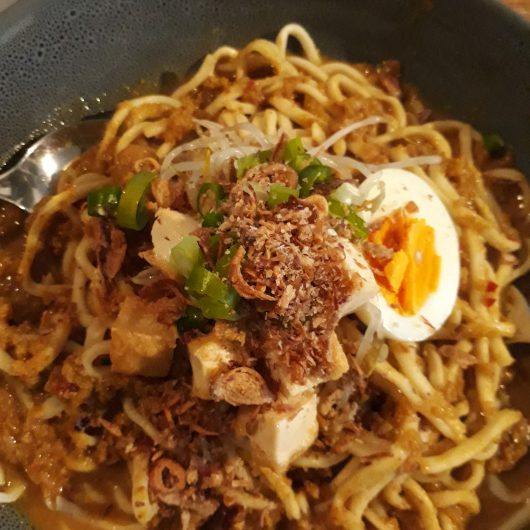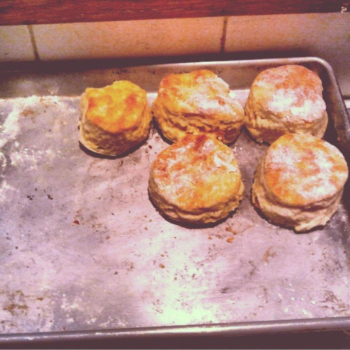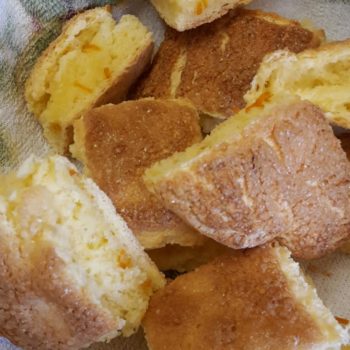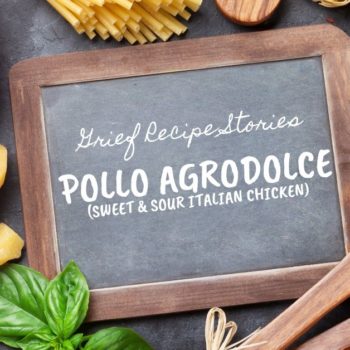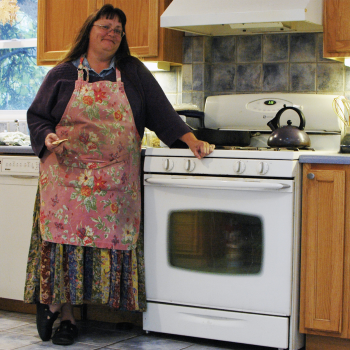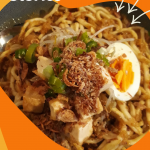When I Want To Remember My Mother, I Eat
/ Grief Recipe Stories : Denise Lara Mangalino
This grief recipe is brought to you by Nabilah Husna
Nabilah is a writer, social policy researcher and tutor from Singapore living in Aotearoa, New Zealand.
Name of dish: Mee Rebus (Malay sweet and spicy noodle soup dish)
When I want to remember my mother, I eat.
The kitchen was my mother’s. My perspective of that domestic relationship evolved depending on the worldview I immersed myself in; as a child, that reality meant some familial stability. Something warm and soft and delicious always waited for me at home. There was someone who knew what I loved and what I detested, and through it all, mostly, a full stomach. As a teenager, it meant fighting the expectation that my mother’s culinary finesse needed to be mine, too. I held on to this like a thorn in my grip until I moved into young adulthood. My relationship with food - of making them - was spiky; a blooming feminist.
Why was this kitchen so solely hers? Why do I not have colorful memories of my father, singing to Siti Nurhaliza on Warna 94.2FM, sunlight bursting through the window as he tends to a bubbling pot of spicy curry? I cooked bad food for a long time before I moved out of the family flat, a retaliation against the norms I rejected. I blamed cooking when I should have blamed the patriarchy.
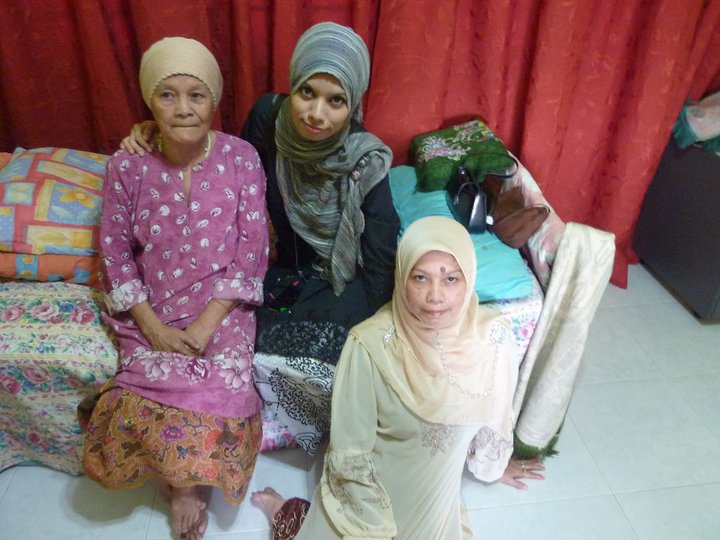
When my mother got sick, I had dreams upon dreams of her cooking again. In them, she was padding around the kitchen in her house slippers, over a festive spread. In my waking life, I pounded names of my favourite dishes of hers on my keyboard into Google search, dug through her silverfish-laden recipe books from the ‘80s, determined to find the meals that I later found she had peeled from her imagination.
It made sense, then, that in the years after her death food became my strongest memory of her. Now, I am 8,000 kilometers away from home, building a life in a different country, where the only place I can eat food resembling what she made is in my own kitchen.
Food is the only part that makes sense about remembering her. It is peaceful and plated, a neat encapsulation of grief that I can enjoy. Everything else, the unpleasant, haphazard magnitude of what I grieve, has no sensible story.
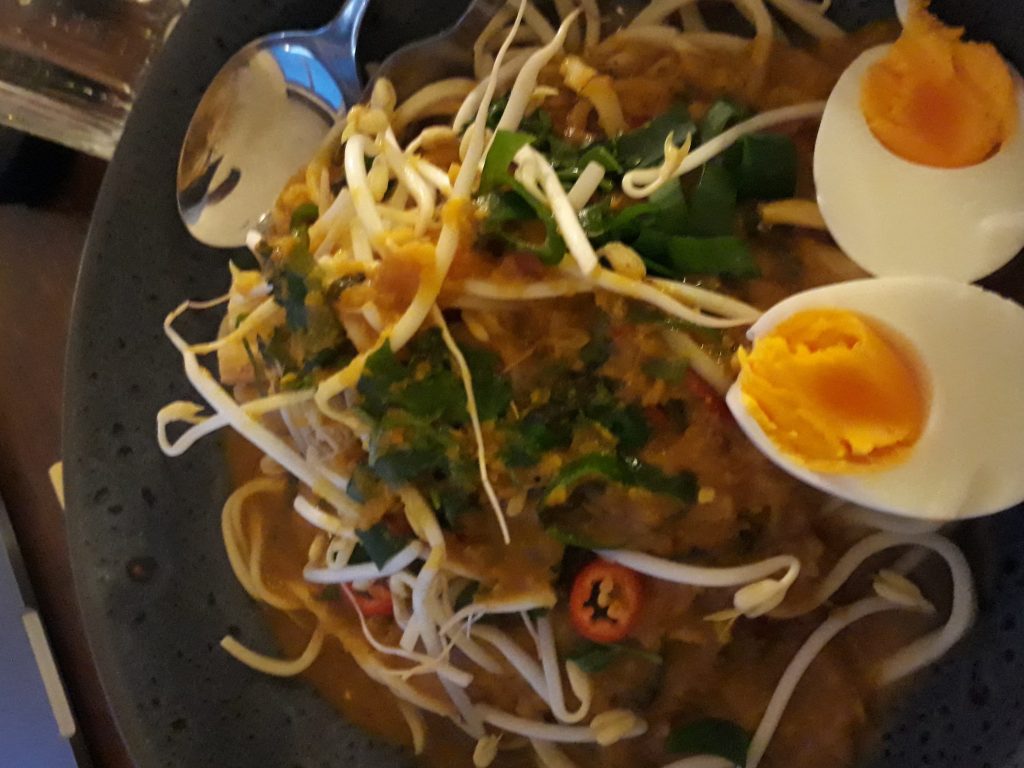
In remembering her, I also remember the rituals of a culture that cradled her. As a minority, one even in my homeland, this culture is never fully protected from the threat of a greater social loss. Culture reproduced itself through my mother. It is birthed through the banal everyday. The familiar warmth of a cuisine I grew up with. What it feels like to mutter doa over a meal. Ice cubes in a cup while I slurp her deliciously burning mee soto. The personality I don, like well-worn pajamas, when I speak Malay. Ablutions. Her singing voice. The language I dream in. The right way to walk through a room full of people at a dhikr ceremony. Greeting customs. Communal grieving practices. Warm rice meals, parceled up like gifts, being handed around in a small flat to the bereaved family.
The trauma of losing her injected itself everywhere into the everyday, too. The songs I know but cannot hum. The devastation when the name of a dish slips from my mind, even if momentarily. Every time P. Ramlee plays, anywhere. Takbir. The holidays I miss. Washing my body like I did hers in her death. The words I struggle to remember. Rituals I cannot partake in. The solitude of my grief.

In trying to gain a sense of control, I have always attempted to make sense of these losses by painstakingly forming a coherent, overdone narrative around them. Understand them through the lens of some tragic poetry, using words that therapists and podcasts have offered me. I found metaphors - once, I wrote about how aphasia stole my mother’s words and mine along with it - and labels - anticipatory, ambiguous, secondary, cumulative - and I centre isolated elements of life - food, culture, customs, genealogy - when I craft romanticized stories about my mother and her death.
But loss is inexplicable and whole without these themes. I want to learn to grieve freely and recklessly now. Unencumbered and natural, like eating with hands. I grieve a mother. Together with her, I grieve a culture, a language, a cuisine, a homeland, a childhood, my father, my siblings, a philosophy, a devotion to faith, the weakened relationships that I wish I could resurrect, a version of myself that did not, so consistently, consider the mortality of those around me. There’s so little sense in the mess of it all that
sometimes, honestly, it is easier to begin slowly, with something I can consume. So I cook. I remember. I eat.

We invite you to share your experiences, questions, and resource suggestions with the WYG community in the discussion section below.
We wrote a book!
After writing online articles for What’s Your Grief
for over a decade, we finally wrote a tangible,
real-life book!
What’s Your Grief? Lists to Help you Through Any Loss is for people experiencing any type of loss. This book discusses some of the most common grief experiences and breaks down psychological concepts to help you understand your thoughts and emotions. It also shares useful coping tools, and helps the reader reflect on their unique relationship with grief and loss.
You can find What’s Your Grief? Lists to Help you Through Any Loss wherever you buy books:

